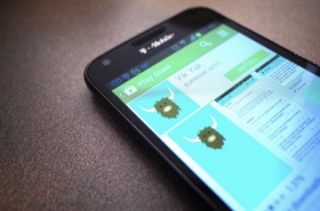Bullying
Yik Yak
Yik Yak: dangerous new app for bullying or harmless gossip site?
Posted March 12, 2015
“The Yik Yak app is the most dangerous form of social media I've ever seen” says my colleague, fellow psychiatrist Dr. Keith Ablow. He explains that schools (and local areas) are turned into chat rooms, complete with all sorts of instant messages—ridiculous, silly, mean, dangerous and vulgar—for anyone to read. It doesn't matter if the messages are true or not, and once it's posted, it's posted, and worst of all, everything is anonymous.
According to the Cyberbullying Research Center, Justin W. Patchin says, "hateful comments (are) basically every other comment. It is too much to even report. Cyberbullying is already a huge problem today and the last thing we need is an anonymous app that allows one to do that. Soon Facebook, Twitter and other social medias will be the least of our worries when it comes to cyberbullying and suicide." Sounds like we need to take steps to immediately ban this new technology that apparently poses more of a threat to modern civilization than ISIS and global warning, combined.
Yik Yak was created by fraternity brothers Tyler Droll and Brooks Buffington, both 24. Yik Yak is a free app that doesn't require a signup or login. It's location based, and according to YikYak.com, anyone within a 10 mile radius can read each other's posts and respond. Any comment you can imagine can be posted with the assurance of complete anonymity. The app, originally intended for adults, warns of mature material and gives notice that it is only appropriate for those 17 and older. That does not serve as a deterrent, however, as teens are downloading the app in droves.
Yik Yak is not the first of its kind. Whisper was the first similar app, appearing in 2012, to post anonymous comments and replies. It did, however, provide a terms of agreement, and was able to track users, save a searchable database and even shared some of its user information with the US Department of Defense. Whisper is still around, but it's not even close in terms of the number of users compared to Yik Yak. Secrets is another app that touted anonymity, but it’s objective was to link you up with friends that you actually knew, as opposed to Yik Yak which involves anyone on the app who is in your vicinity.
Yik Yak was recently featured in a NY Times article which highlighted it’s potential for attacking and demeaning others. Margaret Crouch, an Eastern Michigan University philosophy professor, was lecturing to her class of about 230 freshman. After class a couple of students thought she should know that there was essentially a chat room via Yik Yak going on with smartphones within the hall during her entire lecture. Crouch was shocked to see dozens of comments, mostly demeaning and crude, some couched in sexually explicit language. "I have been defamed, my reputation besmirched. I have been sexually harassed and verbally abused. I am about ready to hire a lawyer.” She brought it to university officials, demanding action. Nothing ever came of it because the posts are all anonymous, supposedly with no way to track who wrote what, though some tech gurus disagree with this lack of traceability. But this illustrates the potential for abuse and the target could have been the girl in the low slung halter top or the large guy in red who needs a shower.
Some of the comments left on Yik Yak are harmless and silly adolescent fun. But, just as we've witnessed on social media sites, a few could be hateful, harassing, sexually explicit and harmful. Another concern voiced by school officials is that Yik Yak could be used to share test answers- but texting alone could do that and it seems like common sense to ban cell phone use during a test. More sobering are the threats of mass shootings and bombs. Two California schools were forced to shut down within one week due to threats that were untraceable. Some schools, like Lake Forest High School in Chicago, have banned the smartphone app to stop the bullying and abuse of both students and staff and it is a fair point to insist that this should be banned in high schools, even though students can still achieve access through their cellular network. Because of this, schools are pleading for parents' help, but keeping Yik Yak out of the students' smartphones will be a challenge.

Does anonymity really bring out the worst in us? A study by assistant professor Arthur D. Santana at the University of Houston says yes. His study examined thousands of both anonymous and non-anonymous comments. 53.3 percent of anonymous comments were mean and uncivil, in contrast to only 28.7 percent of the non-anonymous comments. The nature of anonymity emboldens the user to post words and photos they would not say or show someone in person and it's much easier to insult another when you don't have to do it to their face. Social media allows hurtful words and unflattering photos to be posted without a moment's thought. Now it's even easier. Want to insult someone without leaving a trace as to the origin? There's an app for that. So the argument goes that we can't get rid of all the jerks out there, but perhaps if we take away the anonymity, people will think twice before posting questionable, hateful or dangerous comments.
OK, so that’s some of the issues to consider as to the downside, but to thoroughly examine this new social media force, I performed some hands-on research. I visited a local university watering hole to chat with students. Every single student I spoke with not only had Yik Yak on their phone, they liked it. None of them recalled more any overly abusive language or sexually or racially demeaning comments.
Next, I downloaded Yik Yak onto my smartphone. I live on the edge of the city, therefore, not many "yaks" (the same thing as a tweet on twitter) were present. Yik Yak only allows someone to post yaks within 10 miles of where they currently are, though you do have the ability to “peak” at other locations and follow the yaks, though not to vote or comment. Since Yik Yak allowed me to choose any location, I chose my alma mater, Tulane University to follow closely and another few sites at random.
The majority of posts were benign, such as where to get the best pizza, the name of a new band playing on the quad and, naturally, how bad the food was at Bruff Commons at Tulane. From the stream of comments, there were some mildly offensive yaks, and one sexually inappropriate yak—which was quickly taken down due to down voting.
Herein lies the key to Yik Yak’s survivability. Users themselves can control what's hot and what's not. If a post is good, users can up vote it—the equivalent of LIKE on Facebook or "favorite" on Twitter. If something is repulsive, mean or juvenile, then they down vote it. With a net of only 5 down votes, the comments are removed forever. In this way, the community of participants police themselves and the one negative post I saw came down quickly. Each and every user has the ability to contribute to the stream by either up voting, down voting, writing an original post and/or responding.
Many want to ban Yik Yak, which begs the question, what about free speech? Esha Bhandari with the American Civil Liberties Union remarked that "banning Yik Yak on campuses might be unconstitutional." There are many who agree with her, and believe the best way to combat the negative speech is with positive speech, also on the anonymous sites. Let’s face it limiting free speech, whether on Yik Yak or some other app, will never put an end to offensive speech, texts, phone calls, emails, messages or chats.
I have to admit early on I enjoyed following the random Yik Yak postings, especially from Tulane as it brought back good memories from college. But after a while, the posts all started to sound alike and with the novelty gone, I lost interest. I suspect this will be the same for the younger users as well—but trying to predict the winners and losers in the technology space has proven to be a fool’s errand at best.
In any event, it looks like Yik Yak is going to be here for a while. How long is tough to say in a world where apps come and go like shooting stars. Don't worry—the sky won't be falling and the world is not coming to an end. Banning the app is not the answer as more than likely a new, new thing will take its place before long. And as long as the users continue to self-police, no harm no foul.




